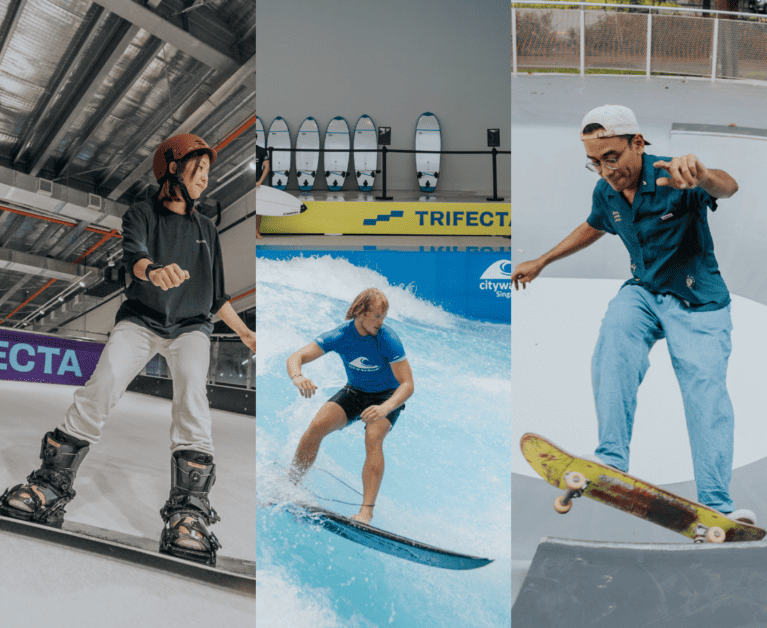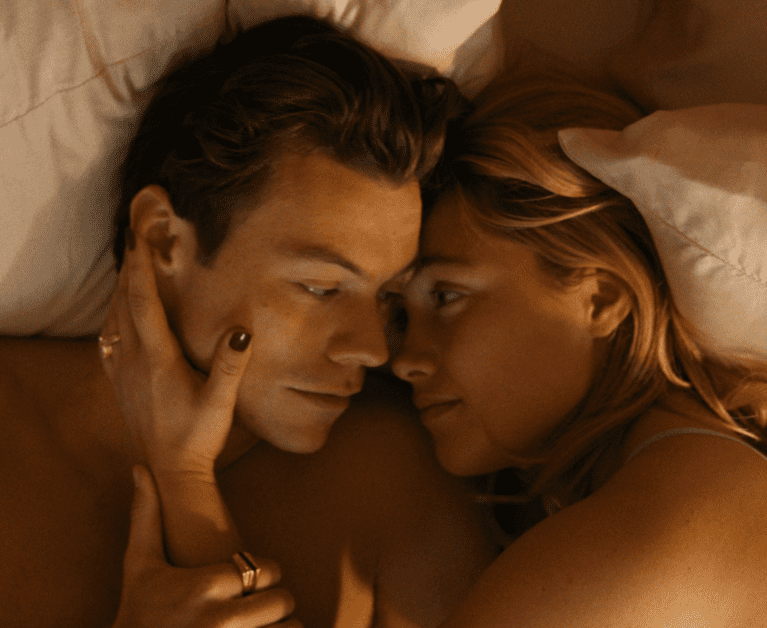Feeling Helpless In COVID-19 Lockdown? Here’s How Trauma-Sensitive Yoga Can Help
PUBLISHED May 6th, 2020 05:00 am | UPDATED May 18th, 2020 06:17 pm
There’s something strangely impotent about living in a lockdown world. Rather than being under our control, our bodies have become either vectors of disease, or vulnerable to infection by unseen beings. Thanks to COVID-19 measures, we’re largely confined to the same four walls; when we go out, we’re caged in by rules on where we can and can’t stand or sit. Logically, we know the science of containing this virus – but emotionally, we can’t help feeling powerless.
While an external cure – lifting the lockdown – might seem like the most obvious remedy, that doesn’t mean we have to wait around helplessly for normalcy to return. Circuit breaker or not, after all, any lasting sense of agency should spark from within us. And one way to light that spark might just come from yoga – but not the commonplace, workout-focused sort we’ve all done. Enter trauma-sensitive yoga, an intriguing new practice designed to empower trauma survivors through the body.
What is Trauma-Sensitive Yoga?
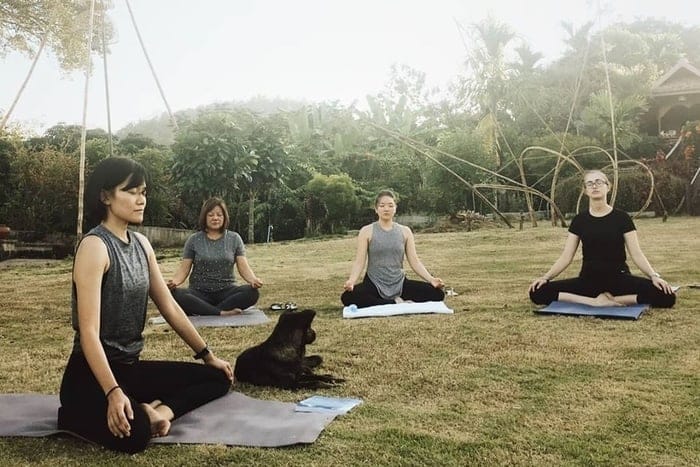
The term was coined in 2002 by David Emerson, founder-director of yoga services at the Trauma Centre at the Justice Resource Institute in the US. Developed into a clinical program alongside psychiatric experts like Bessel van der Kolk, M.D., this pioneering yoga practice aims to restore a lost sense of agency, by helping participants reclaim comfort in their own bodies.
In Trauma Centre Trauma-Sensitive Yoga (TCTSY), elements of Hatha yoga are woven together with trauma research insights to form a unique, non-coercive experience of yoga. In contrast to your traditional yoga class, TCTSY is refreshingly hands-off – physically as well as mentally. Not only do instructors avoid hands-on adjustment, they also steer clear of giving strict commands as to what forms and movements you should do. In short, the one in charge of the class is no longer some external authority (i.e. your yoga teacher) – it’s your own body, and how you feel within it, which takes the wheel.
Freedom To Move

Free choice in yoga class? It’s a strange thought – we’re so used to obeying a ‘correct’ way to pose, move, and even breathe. “In my early days of sharing this practice in my yoga classes, I had many participants looking confused when I used invitational language,” shares Krisa Qiu, founder of home yoga studio Bliss Shala. “They just ended up copying what I was doing.”
“It can take a while for people to learn that they have real choices.”
One of only two certified TCTSY facilitators in Singapore, Krisa was introduced to trauma-sensitive yoga by the legendary Kristen Pringle, founder-director of the Mindful Movement Centre in Melbourne. Though Krisa had practised yoga for 14 years by then, her first-ever TCTSY class came as a surprise. “I was used to receiving strict instructions on how to move my body into a particular position,” she explains. “Here, I was surprised by how much freedom I had in deciding in where to be and how to move my body.”
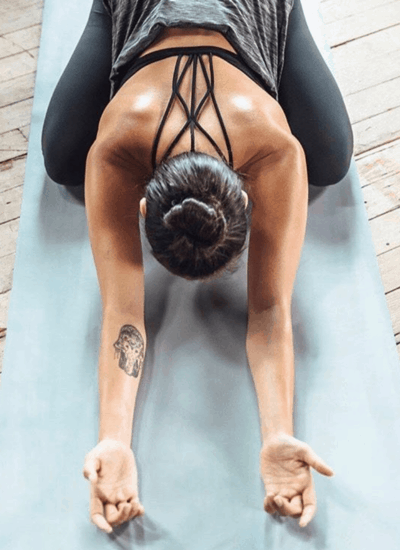
She recalls the unusual way Kristen cued them to make their own choices: “‘If you’d like, you could possibly extend your arms to the sides or raise them up. If you’d like to do something different from what I am offering, please feel free to do so. This is your practice, there is no right or wrong way to practice yoga.'”
“It felt rebellious and daring,” Krisa laughs. But more than that, it enabled a sense of safety in her own body to grow. “I felt safe and comfortable to notice what was happening in my own body without judgment. I chose to sit in the chair and started to drown out Kristen’s voice, letting my sensations take center stage.”
Empowered by this first encounter, Krisa went on to complete the rigorous 300-hour TCTSY certification program for yoga teachers. She now offers group classes and private sessions for trauma-sensitive yoga, in hopes of helping those affected by traumatic stress to begin their own healing process.
Authors of Our Own Recovery
As COVID-19 lockdowns ease, economies all over the world will soon be on their long recovery road. Equally in need of healing, however, are our psychological wounds. For those of us already affected by trauma, the helplessness of lockdown might have taken a further toll on our mental health. Throw in a pinch of stress about everything from family to money, and you’ve got a recipe for disaster. As we look forward to rebuilding our lives, we shouldn’t forget to strengthen our inner selves – the bedrock on which everything else rests.
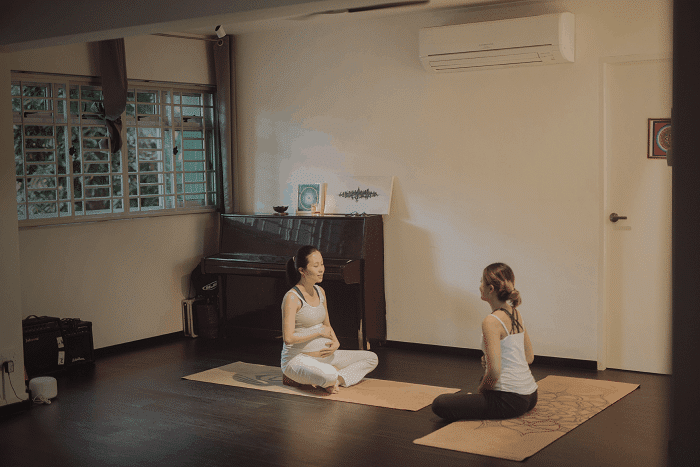
“Continuous exposure to trauma,” Krisa tells us, “makes our bodies more likely to experience fight, flight or freeze responses.” Such responses include “hyper-vigilance, avoidance and numbing of sensation” – symptoms which might resonate with those of us numbed by the news or hyper-anxious about getting infected. Rather than dismissing these responses, TCTSY can help participants “find their own ways to release tension, reduce and control fear, and tolerate sensation”.
And that, for Krisa, is ultimately the power of trauma-sensitive yoga – that each person learns to save themselves, becoming the author of their own recovery. “Others may offer advice, assistance, affection, and care,” she says, “but not cure. The first principle of recovery is empowerment of the survivor.” In a world which seems to be spinning out of control, these are hopeful words indeed.
This article was written in collaboration with Krisa Qiu, founder of Bliss Shala and one of only two certified facilitators in Trauma Centre Trauma Sensitive Yoga (TCTSY) in Singapore. For more information about her trauma-sensitive yoga programs, see here.
Disclaimer: This information is not intended nor implied to be a substitute for professional medical advice. Do seek the advice of a licensed therapist about any questions you may have regarding trauma.

